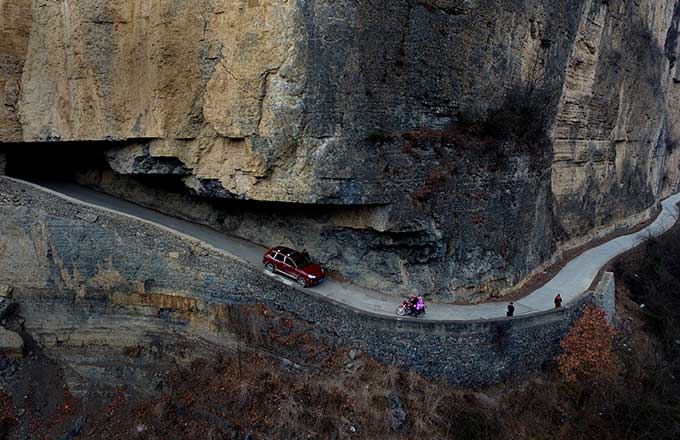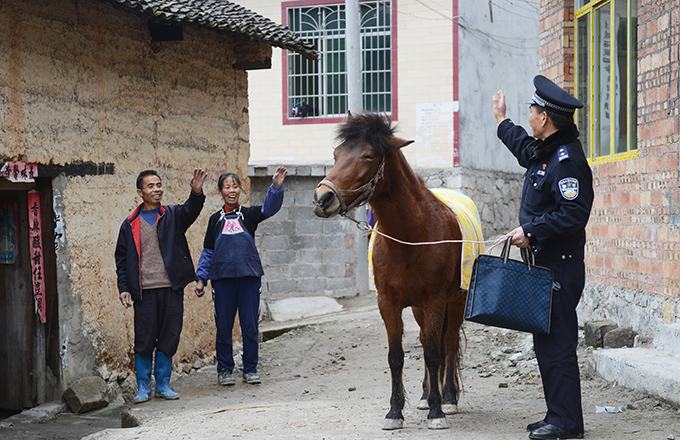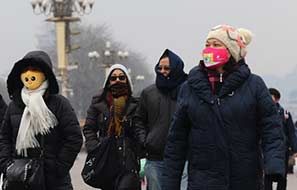Tales from the farmyard
When discussing the pig carcasses floating in the river in Shanghai, Yang Shengguan, a farmer from Zhulin village in Zhejiang province became emotional.
"They said these pigs were from our village; they obviously don't know the real conditions here," said Yang, who with his wife raises 100 pigs in a concrete building next to their house.
"In our village, almost every family raises pigs, some even raise more than 1,000," he said, adding that the price of pork has declined in recent years and the discovery of the carcasses will put even more pressure on hard-pressed villagers.
"After this, the middlemen will intentionally force the price even lower, saying that our village has a large number of sick and dead pigs, which will be hard to sell, but we don't have any epidemics here. It's quite common for a few pigs to die during the breeding process, but not as many as the media reported," he said.
"Young pigs' resistance to disease is usually low and they easily become sick in bad weather. If the preventive work was better, the deaths could be avoided," said the 66-year-old, who has been raising pigs for 30 years.
"When pigs die, we send them to the collection point and then they are transferred to disposal stations to avoid safety hazards," he added. "In the past, people used to throw dead pigs on the road. But things have changed in recent years. We know that's not good for other people. Those who dump carcasses in the rivers will be fined. Government officials often come to inspect the farms," he said.
- Wang Hongyi
Zhang Guoqiang, 48, owns around 300 pigs in Jiamusi, Heilongjiang province. He told China Daily his story.
"I have been raising pigs for about 20 years. This is the first time that I, or any of the other farmers in the neighborhood, have heard about the horrible events in Shanghai.
There must be great losses. Small- and middle-scale farmers like us, at the, usually sell 90 percent of the pigs we raise. Before I can sell my pigs, I receive a visit from the inspection authorities. That's usually twice a year.
It's unbelievable because it's not the way we usually deal with dead pigs. Afraid of polluting the environment and complaints from the neighbors, we usually bury the pigs away from inhabited areas.
I usually lose one or two pigs without warning, from heart failure or something similar. Occasionally, I have lost eight or 10 at one go, but I always make sure they can't endanger the rest of the pigs.
During the six-month raising period, I regularly inject them with vaccines. I work with my wife from 6 am to 10 pm every day and sometimes, when we have a large number of animals, I have to hire more hands. It's a hard way to make a living."
- Zhang Yuchen


















